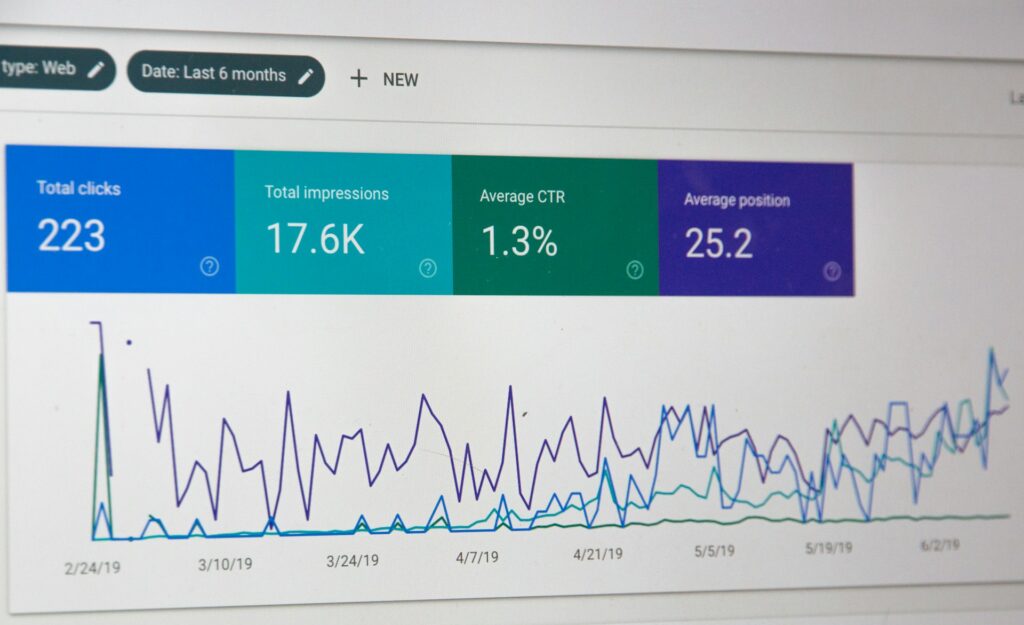The times they are a-changin’. In the ever-evolving landscape of Search Engine Optimisation (SEO), keywords stand as the bedrock of a well-structured strategy. They are the linchpins that tether your content to the queries of your potential visitors.
However, the art of keyword optimisation is not merely about peppering your content with popular search terms; it’s a nuanced dance that, if misstepped, can lead to your website waltzing into obscurity. Here, we take a cursory peek under the hood of keywords and explore how to ensure they are bolstering rather than blunting your rankings.
Understanding Keywords In The Context Of SEO
At its core, a keyword is a word or phrase that encapsulates the essence of your content. It’s what a user types into a search engine when they’re on the hunt for information. Search engines like Google use these keywords to understand the subject matter of your web pages and to match them with relevant searches.
The Shift From Quantity To Quality
Gone are the days when stuffing your content with a high volume of keywords could guarantee a top spot in search results. Search engines have become more sophisticated, prioritising content that provides value and a good user experience. This shift from quantity to quality means that your keyword strategy must be more refined than ever.
Intent Is King
Forget ‘content is king’. In terms of keywords, intent is king. Understanding the intent behind a search query is crucial. Keywords can be categorised into three main types based on user intent:
- Informational: The user is seeking information, such as “how to bake a Victoria sponge cake”.
- Navigational: The user is trying to find a specific website or page, like “BBC Good Food Victoria sponge recipe”.
- Transactional: The user is prepared to make a purchase or engage in another type of transaction, for example, “buy Victoria sponge cake online”.
Aligning your keywords with the correct user intent is paramount to driving relevant traffic to your site.

SEO Tips For Effective Keyword Optimisation
Conduct Thorough Keyword Research
Begin with comprehensive keyword research. Utilise tools like Google’s Keyword Planner, SEMrush, or Ahrefs to discover the terms your audience is searching for. Look for a mix of head terms (broad, high-competition keywords) and long-tail keywords (more specific, lower-competition phrases). The latter are particularly useful for capturing targeted traffic and are often associated with higher conversion rates.
Leverage Latent Semantic Indexing (LSI) Keywords
As the guys at Head45, an established SEO company in Cardiff, tell us, latent Semantic Indexing (LSI) keywords are terms and phrases that are semantically related to your primary keywords. They provide context to your content and help search engines understand the topic more deeply. For example, if your primary keyword is “organic coffee beans,” LSI keywords might include “fair trade coffee,” “arabica beans,” or “sustainable coffee farming.”
Incorporating LSI keywords can improve the richness and relevance of your content, potentially leading to better rankings. They also help you avoid keyword stuffing by diversifying the language used in your content.
Use tools like LSIGraph to identify LSI keywords related to your main terms and sprinkle them throughout your content, including headings, subheadings, and the body text. This approach not only aids SEO but also enhances the reading experience by providing a more comprehensive coverage of the subject.
Analyse Your Competition
Understanding what keywords your competitors are ranking for can provide valuable insights. Analyse their content and keyword strategies to identify gaps you can exploit. However, don’t fall into the trap of copying them verbatim. Instead, use this information to differentiate your content and offer unique value.
Use Keywords Naturally & Contextually
Keywords should be integrated seamlessly into your content. They should feel natural within the context of the text and not disrupt the reader’s experience. Remember, you’re writing for humans first and search engines second. Keyword stuffing is not only outdated but can also incur penalties from search engines.
Optimise For Voice Search
With the rise of digital assistants, voice search is becoming increasingly prevalent. When optimising for voice search, consider the conversational tone and longer phrases people use when speaking. For instance, while someone might type “SEO tips” into a search engine, they might ask their digital assistant, “What are the best tips for improving SEO?”

Don’t Forget About Meta Tags & Descriptions
Keywords should also be included in meta tags and descriptions. These elements help search engines understand the content of your pages and can improve click-through rates from search engine results pages (SERPs). Keep your meta descriptions concise and compelling, with a clear call to action.
Embrace Local SEO With Geo-Targeted Keywords
If your business serves a specific geographic area, local SEO should be a cornerstone of your keyword strategy. Geo-targeted keywords are incredibly effective for businesses looking to attract a local audience. Include location-specific phrases in your content, such as “SEO services in Manchester” or “London boutique SEO agency.”
When incorporating local SEO, ensure that your business is also listed on Google My Business and other relevant local directories. Use consistent name, address, and phone number (NAP) information across all listings to boost your local search presence. Additionally, encourage satisfied customers to leave reviews on these platforms, as positive reviews can enhance your visibility in local search results.
Monitor & Adapt
SEO is not a set-it-and-forget-it endeavour. Regularly monitor your keyword rankings and the performance of your content. Use analytics to understand how users are interacting with your site and refine your keyword strategy accordingly. Adapt to changes in search behaviour and algorithm updates to stay ahead of the curve.
The Bottom Line
Keywords are the compass that guides search engines to your content. By understanding the nuances of keyword optimisation, you can ensure that your SEO efforts lead to improved visibility and engagement.
Remember to focus on the quality and relevance of your keywords, align them with user intent, and weave them into your content naturally. With these tips in hand, you’re well on your way to ensuring that your keywords are helping rather than hindering your rankings.





